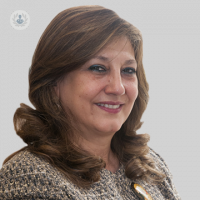Living with diabetes
Written by:Anyone with diabetes should take care of their disease in a comprehensive manner. This phrase may seem like a cliché but it has the whole background of the diabetes problem. If one does not do things well, the disease happens to you - over time - your receipt unquestionably. And since with poorly controlled diabetes the awareness of illness does not exist (except in advanced stages) it is very easy to minimize the problem and not want to see that you are diabetic and that you should take care of yourself. So the educational process is essential from the beginning. I always tell my patients: we have to draw a path to follow that you automate and integrate in your way of living, in terms of schedules , meals , dosages of drugs (not just insulin ), the exercise to be performed, the behavior before the illnesses, the vacations ... in few words: to know how to live with the diabetes adjusting to the agreed thing 80% of times.
If not, then comes the day to day and it is sometimes impossible to follow the agreed upon, but if one has well drawn that way it will be easy to return to the path and control will be assured. Although many people are overwhelmed thinking that they are not able to learn all that is required, then I speak of the simile of driving license: the first day you put yourself before a steering wheel it seems impossible to attend at the same time to the road, to the rear view mirrors , at the feet ... and then drive without thinking, automatically. This is how a person with diabetes must process their disease: they must learn to control themselves automatically and they can do it! although perfection does not exist. And if they are controlled, the complications and risks are minimized.
Despite all this, the patient is usually worried about if he can not make a normal life. Having to adjust to a schedule, control what you eat, be aware of the glycemia ... are worries that add to the uneasiness of losing health. Therefore, education and automated assimilation of a way of proceeding without your psyche suffering, is the most intelligent approach. It's about that since you have diabetes , "grab the bull by the horns", learn to do things right and relax. Everything will be fine and you will move away the ghost of the important complications.

Diabetes, new technologies and advances
Nowadays we must also consider the new technologies that facilitate glycemic control, improve the quality of life and give you security. It is unthinkable for young people (and not so young) to appear before their doctor only with the folio of the blood glucose controls written by hand when all the capillary blood glucose machines have software that can be quickly extracted a lot of information from the glycemia: the means throughout the day, the oscillations, the responses to meals or hypoglycemia, etc.. These new glucometers , with the bolus calculators, facilitate the adjustment of insulin doses without you doing it "on the fly". There are also already glucometers coupled to mobile phones .
Other advances are, for example, insulin pumps that are, for now, the most physiological way to get insulin. Blood glucose sensors are another unquestionable advance. Telemedicine consultations (without the patient having to be present at the doctor) are easier if the person with diabetes uploads their blood glucose levels to their computer, or the data from the insulin pump and / or the sensor, and your doctor at a distance has access to all these data ... Speaking clearly, in 2013 a diabetology consultation that does not work in this way is no longer conceived. In my case I have two patients, one in France and the other in Germany, who only come to the clinic once a year (for Christmas), but every month or two we connect to adjust the treatment and the doubts having all the glycemia in front of us of the last weeks.


